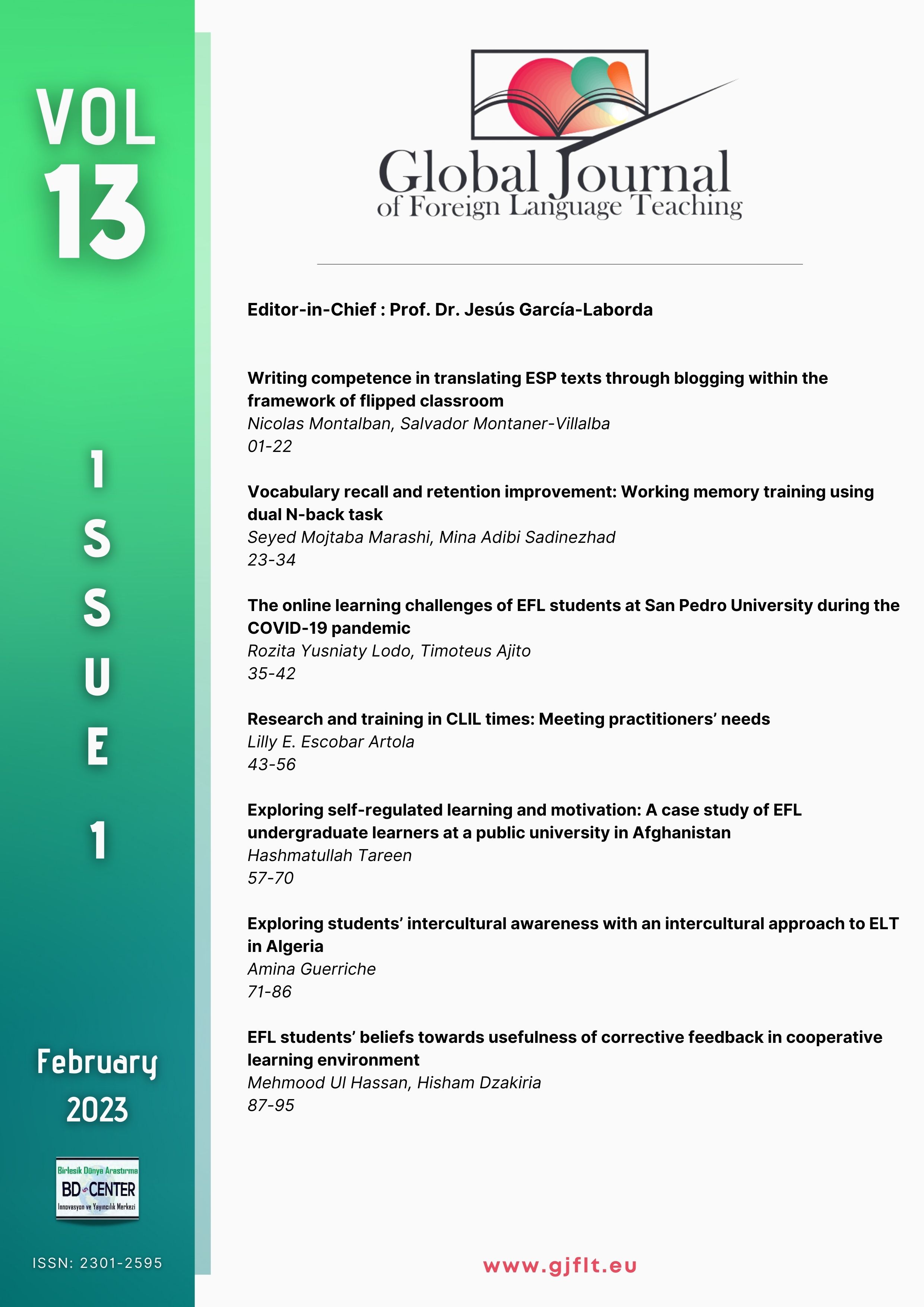Exploring self-regulated learning and motivation: A case study of EFL undergraduate learners at a public university in Afghanistan
Main Article Content
Abstract
The concept of self-regulated learning (SRL) in the field of educational psychology has been developed to comprehend how students learn autonomously. Motivation is a pivotal factor in learners’ academic outcomes and its connection with (SRL) is extensive. The purpose of this study was to further explore this phenomenon among EFL learners enrolled at Kandahar University. Quantitative research was carried out on a sample of 123 EFL learners. The data were collected through an online survey questionnaire and analysed using statistical packages. The results indicated that the majority of the learners were standing on the average level of SRL. The results also revealed that there was a significant positive relationship between motivation and SRL. Foreign language learning can be enhanced by designing environments in a way that fosters SRL skills. Further research could be conducted with a wider sample size from other public universities to generate a more fine-grained understanding.
Keywords: EFL, EFL learners, self-regulated learning, motivation
Downloads
Article Details

This work is licensed under a Creative Commons Attribution-NonCommercial-NoDerivatives 4.0 International License.
Authors who publish with this journal agree to the following terms:- Authors retain copyright and grant the journal right of first publication with the work simultaneously licensed under a Creative Commons Attribution License that allows others to share the work with an acknowledgement of the work's authorship and initial publication in this journal.
- Authors are able to enter into separate, additional contractual arrangements for the non-exclusive distribution of the journal's published version of the work (e.g., post it to an institutional repository or publish it in a book), with an acknowledgement of its initial publication in this journal.
- Authors are permitted and encouraged to post their work online (e.g., in institutional repositories or on their website) prior to and during the submission process, as it can lead to productive exchanges, as well as earlier and greater citation of published work (SeeThe Effect of Open Access).
